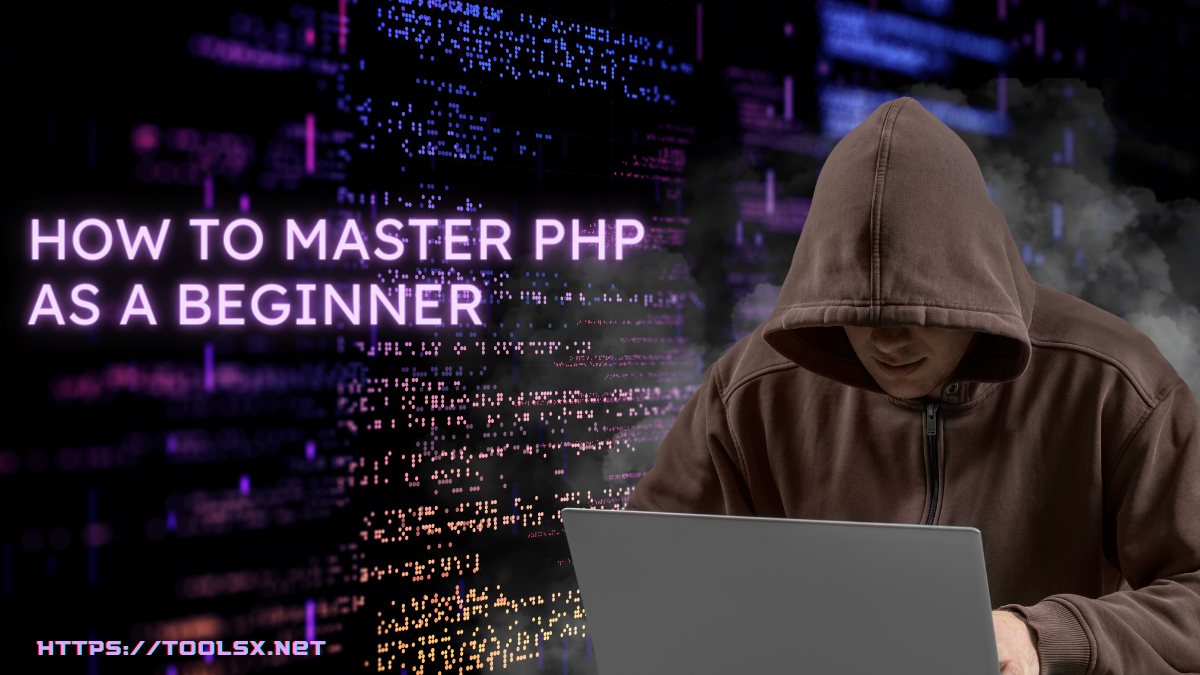Learning a new programming language like PHP can be intimidating for beginners. Fortunately, there are plenty of resources available online that can help you learn the basics of this powerful programming language without paying for expensive college courses.
The official PHP manual is a great place to get started. It outlines the language’s best practices, including installation instructions, syntax advice, and frequently asked questions from other developers.
I. Read the Manual
PHP is the backbone of many huge websites, including Facebook and Wikipedia. It handles all sorts of functions, from generating interactive content to collecting form data and storing information in databases. It is also used by CMSs, including WordPress and Drupal.
To learn the basics of PHP, the best place to start is with its official manual. This resource is a valuable tool for new developers and includes installation instructions, syntax guidance, and frequently asked questions. However, if you prefer a more structured approach, Codecademy’s Learn PHP online course is a great choice. It starts with the fundamentals of PHP and then moves on to more advanced concepts like programming techniques and object-oriented design.
Another excellent resource for beginner programmers is the Head First PHP & MySQL book. This guide to the popular web scripting language provides clear explanations of the syntax and demonstrates how to apply these principles in real-world applications. If you have experience with Java, this book will be particularly helpful for you because the author frequently draws on this skill to explain PHP concepts.
If you prefer video tutorials to written instructions, Class Central curates a six-hour YouTube playlist of free video lessons on how to create your first PHP project. The series covers all the fundamentals of programming, including variables, string manipulation, loops, and arrays. It also teaches how to use PHP with other languages, such as MySQL and JavaScript.
II. Read an Ebook
Reading an ebook while learning a programming language is a great way to supplement your classroom learning. If the PHP manual is too intimidating to read, try looking for a book that is specifically designed for beginners. This will help you get a jump start on your programming career and understand the fundamentals of the code better.
If you’re not quite ready to spend money on a book, your local library may have an ebook collection. Many libraries also offer an app that you can download to your phone or tablet, so you can access the books anywhere. This can be especially helpful if you’re traveling, or if you don’t have time to leave the house.
Like any programming language, PHP has best practices you should follow. Failure to do so will lead to errors that you may not be able to fix later, and this can lead to broken websites. This book teaches you the ins and outs of the language and will help you avoid costly mistakes.
If you’re planning to build a website with PHP, this is the book for you. It will walk you through the basics of this server-side language and help you understand how it works with HTML. This book will also give you an understanding of how to work with databases.
III. Watch a Video
There are a lot of ways to learn PHP, from free YouTube tutorials to coding bootcamps. But one of the most effective methods is to watch a video tutorial, which allows you to see coding in real time. You can find videos for all levels of PHP, from beginners to advanced coders. However, be careful when choosing a video because some of the tutorials on YouTube are outdated and may not be accurate.
There are also a number of paid courses that offer an advanced look at PHP. These are often more expensive than free courses but they can provide a more structured learning experience. These courses typically include video, text tutorials, and interactive learning exercises. Some also have quizzes and achievements to help you stay engaged. If you’re interested in taking a course, check out Treehouse, which offers thousands of courses for a monthly fee.
Another great way to learn PHP is by building a website. This will give you a hands-on experience with the language and help you become familiar with its syntax. This course will teach you how to create a simple web page using PHP. It will also cover basic programming concepts, such as variables, loops, and Boolean comparisons. You’ll also learn how to use MySQL and Ajax. Upon completion of the course, you’ll be ready to build your own website.
IV. Ask Questions
PHP is a server-side scripting language that’s used to build dynamic websites and applications. It’s the backbone of WordPress, and it’s also a popular choice for creating e-commerce stores.
If you’re a beginner learning to code, it’s okay to ask questions as you get stuck. But you should try to solve the problem yourself before asking for help. Otherwise, you’ll learn the lesson a lot slower than if you’d figured it out for yourself.
Thankfully, PHP isn’t an especially difficult programming language to learn as a beginner. You’ll find plenty of helpful resources, including a detailed documentation and discussion threads on forums like Stack Overflow. And if you’re taking an online course, such as BitDegree’s “Learn PHP Online”, you can email your instructor with any questions you have.
The best way to master PHP is by practicing it on real-world projects, such as creating a blog or building a website. Once you’ve got the hang of it, be sure to add your best work to your developer portfolio so that employers can see it. Good luck! And remember, it takes hard work to become a PHP expert. But if you stick with these tips, you’ll be on your way in no time!


